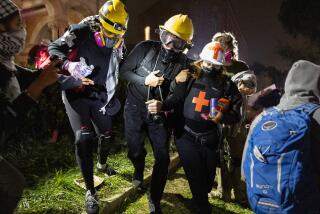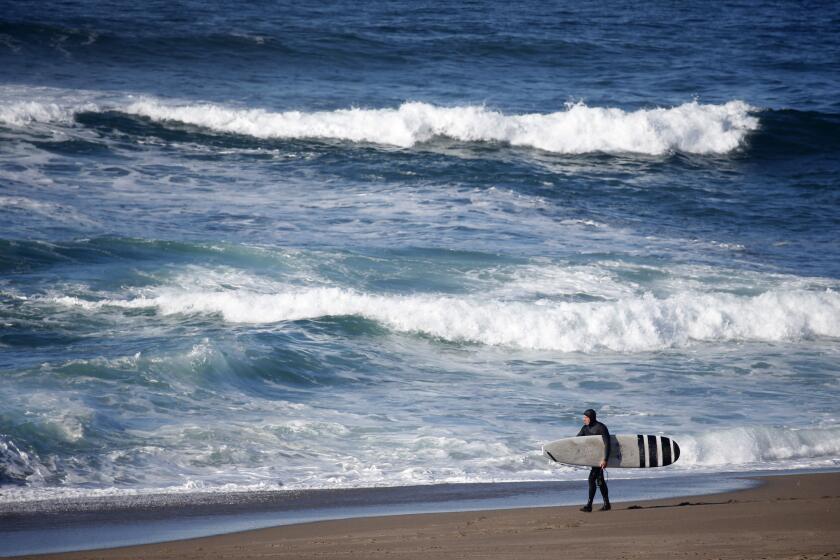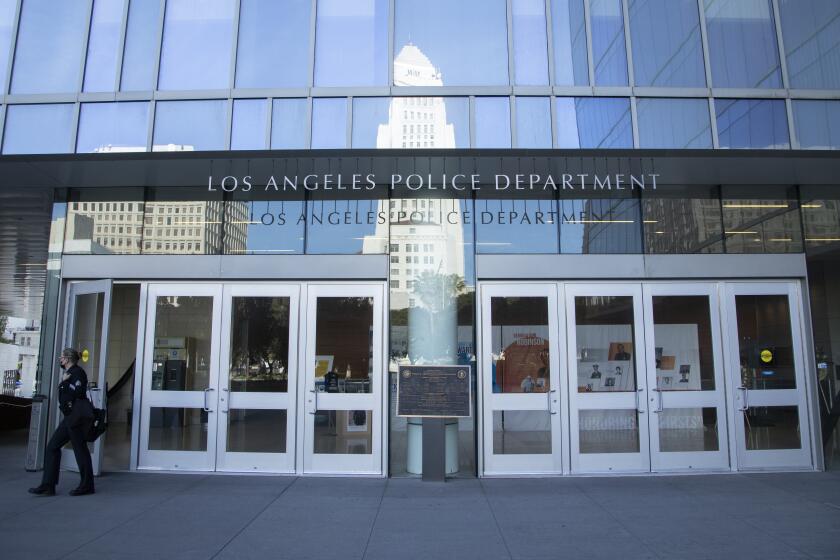EARTHWATCH : Breathing Easier : The state Air Resources Board has approved new clean-air regulations that are a way to phase out our reliance on fossil fuels.
Since I learned last month that smog had come to Ventura County and that it speeds the aging process in our hearts and lungs, I’ve become really interested in possible solutions to this problem.
You’ve perhaps read by now that this state, in the person of Gov. George Deukmejian’s appointees to the California Air Resources Board, just had some hearings on regulations to require sales of low-pollution and electric cars and low-pollution fuels--with a phase-in starting soon.
The board’s staff had done an environmental audit, found our state’s air to be the most polluted in the land and found that “mobile sources” bear two-thirds of the blame. During the 20 years of the air board’s existence, it has cut pollution emanating from cars by 90% from 1967 levels. Meanwhile, the number of vehicles has doubled, returning smog levels to roughly where they were before.
I researched the proposed regulations. Buried in them was a string of numbers that pointed toward a 60% cut in petroleum consumption. And auto dealers’ would be prohibited from selling vehicles that pollute. (Note: These regulations were thought up before the Iraqi invasion.)
I went down to the hearings in Los Angeles expecting some fireworks. I even took the bus--politically correct, but no fun, alas. The Air Resources Board sat on the dais. Eight men and women who looked like an audition session for “All the President’s Men”--characters to be interviewed by Woodward and Bernstein. Facing them in the hearing room was an army of 200 auto industry and oil lobbyists.
From the sideline chairs, a platoon of government experts filed to the microphone to make their case for cleaning up the air and weaning ourselves from dependence on petroleum.
Then business had its say about the proposed new regulations. There was polite, somewhat grudging acceptance of principals but an undertone of what Bart Simpson calls “an attitude.” Their last spokesman said this was an “illegal taking,” and unconstitutional and contrary to sound business practice and, anyway, California had no authority to make such laws. (Note for readers: Ours is the only state that regulates clean air. The others leave it up to the Environmental Protection Agency in Washington.)
For a moment, the whole board sat in silence and the spokesman waited by the podium for questions. Finally, a member--on the far right from where I sat--said of the last lobbyist’s salvo, “I’m very impressed by the logic of your argument.” He was San Diego County Supervisor Brian Billbray, from a “Navy” district. I braced myself for an episode wherein he would fix his fellow board members in his manly gaze and launch into a spirited recapitulation of the oil and auto industry spokesmen’s spirited and persuasive appeal.
But instead he paused briefly and said, “I’m going to have to compare your argument to one I heard last night at home . . . my son’s excuses for not eating his peas.”
The board then voted 8 to 0 in favor of its new regulations. Since that vote, only a fortnight ago but, to me, an era ago, New York’s State Assembly adopted a similar plan, Sacramento’s public utility voted to eliminate all fossil fuel use in 30 years and the U.S. government began to investigate oil company gouging in this time of crisis. And this week, Congress wrote these new California regulations into the pending Federal Clean Air Act. Of course, Detroit’s congressman, Rep. John D. Dingell (D-Mich.) declared war against the measure, but that is for a different column.
My fix on all of this: We Americans found out about cancer and cut down smoking. Our people wanted to change their habits. The new auto and fuel regulations passed in California have not banned cars--just mandated a phase-out of pollutants that we put into them and thence into our environment.
These Air Resources Board measures are being described in this paper and in other papers as revolutionary. No. Like the events of 200 years ago in this country, such revolutions, to paraphrase Henry Steele Commanger, occur first in the hearts of the people and then among the politicians. The board’s vote ratified a revolution. In California at least, we’re growing up. We’ve already begun to eat our peas.
More to Read
Start your day right
Sign up for Essential California for news, features and recommendations from the L.A. Times and beyond in your inbox six days a week.
You may occasionally receive promotional content from the Los Angeles Times.






